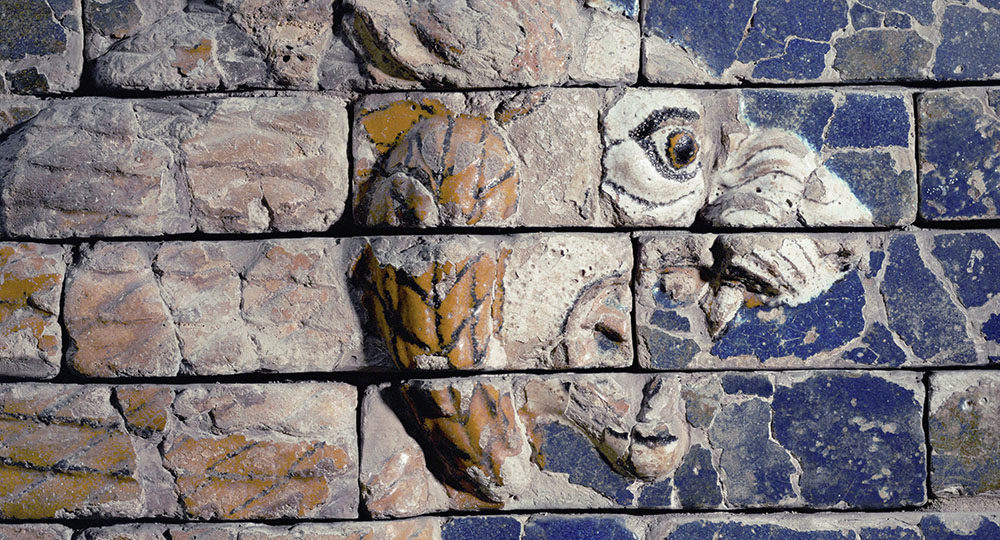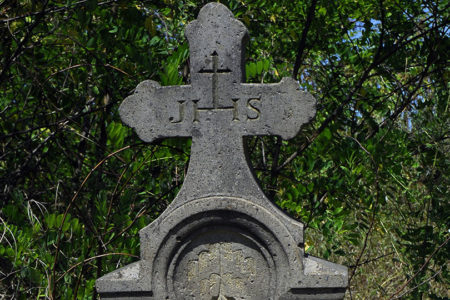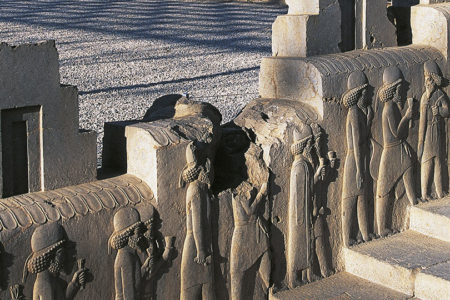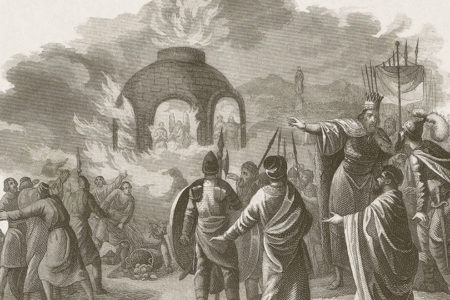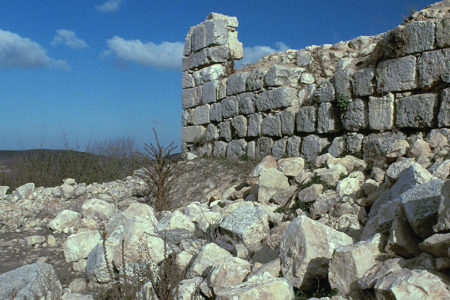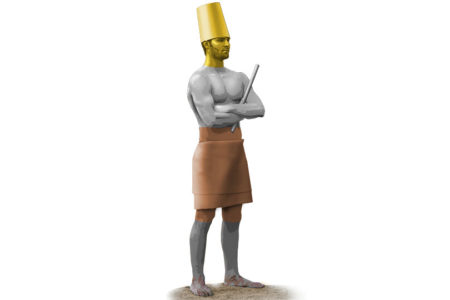Every Knee Shall Bow
As a child I loved to read adventures set in the far-flung future or the wild and woolly West. These tales held my interest, especially as the heroes interacted with the villains. Almost every bad guy was impressed with his own significance and was egotistical, arrogant, and proud; yet he always lost to the good guys.
King Solomon declared, “Pride goes before destruction, and a haughty spirit before a fall” (Prov. 16:18). Unfortunately, pride is a problem in the real world, too, and it is the key theme of Daniel 4.
This chapter was written by Nebuchadnezzar and recounts an amazing event in the life of this great king of Babylon. It begins with a dream he had that made him “afraid, and…troubled” (v. 5). So he summoned “all the wise men of Babylon” (v. 6). He had been down this road before and had found them useless, as they were this time as well. No one could help him except the Jewish prophet Daniel:
The tree that you saw,…is you, O king, who have grown and become strong;…And…the king saw a watcher, a holy one, coming down from heaven and saying, “Chop down the tree and destroy it, but leave its stump and roots…and let him graze with the beasts of the field, till seven times pass over him” (vv. 20, 22–23).
The dream explained what would happen to Nebuchadnezzar because of his pride. He would live like an animal, be driven from his palace, and endure degradation and humiliation until he knew “that the Most High rules in the kingdom of men, and gives it to whomever He chooses” (v. 25)
This was not encouraging news. Daniel had grown fond of the king, declaring, “May the dream concern those who hate you, and its interpretation concern your enemies!” (v. 19). The Lord was warning Nebuchadnezzar to humble himself before God, or God would do the job for him.
Daniel pleaded with the king: “Break off your sins by being righteous, and your iniquities by showing mercy to the poor. Perhaps there may be a lengthening of your prosperity” (v. 27).
But Nebuchadnezzar did not. One year later, while strolling through the palace, he proclaimed, “Is not this great Babylon, that I have built for a royal dwelling by my mighty power and for the honor of my majesty?” (v. 30).
That did it! That very hour, “he was driven from men and ate grass like oxen; his body was wet with the dew of heaven” (v. 33); and he lived like an animal for “seven times.” Scripture does not explain whether this period was seven weeks, months, or years. But it had to take time for his physical appearance to undergo the radical transformation described in verse 33: “His hair had grown like eagles’ feathers and his nails like birds’ claws.”
The good news is that this account does not end with the king in a feral, inhuman state:
At the end of the time I, Nebuchadnezzar, lifted my eyes to heaven, and my understanding returned to me; and I blessed the Most High and praised and honored Him who lives forever. For His dominion is an everlasting dominion, and His kingdom is from generation to generation. Now I, Nebuchadnezzar, praise and extol and honor the King of heaven, all of whose works are truth, and His ways justice (vv. 34, 37).
Then the Lord returned his kingdom to him and restored his honor and splendor (v. 36). God changed Nebuchadnezzar from a bad guy to a good guy and from a man filled with pride to someone who bowed the knee before the true God of heaven.
